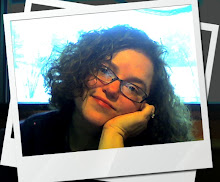It keeps coming around in circles:the philosophical struggle between educators who believe in a liberal arts education model and those who believe in the technical, or job-preparedness model.
I could write a book about this, but I’m going to limit myself here to two main issues:1.Liberal arts is not what it used to be. and2.To quote Robert Heinlein:“A human being should be able to change a diaper, plan an invasion, butcher a hog, conn a ship, design a building, write a sonnet, balance accounts, build a wall, set a bone, comfort the dying, take orders, give orders, cooperate, act alone, solve equations, analyze a new problem, pitch manure, program a computer, cook a tasty meal, fight efficiently, die gallantly. Specialization is for insects.”
Many arts students balk at the idea of taking in-depth mathematics or sciences courses, just as many science students balk at the idea of taking upper level literature or humanities courses, but the point of a liberal arts education is the concept of the fully rounded individual.You really never know what information will be helpful or useful to you and when.My dad always used to tell me that algebra taught you how to think and learning it taught you how to learn.I may have hated it, but it did make a part of my mind work that I didn’t tend to use otherwise.The same is true for my friends who were in calculus and advanced physics when they had to take Shakespearean literature.They were using mental muscles that they didn’t want to use, but it was good for them.
The concept of a “liberal arts education” got a bad rap with working class America because “they [were] the arts appropriate to free persons, that is, persons who do not have to work for a living and have the leisure to pursue their interests in literature or philosophy.”(Wayne Bivens-Tatum:The Usefulness of the Liberal Arts)My father, who is a very politically conservative and shrewd and smart businessman, went to a business school on the G.I. bill after the Korean war.He financed my “liberal arts” education, but not without picking on me ruthlessly for becoming “liberal” for going to that school.But that is really no longer what a liberal arts education is.Today, employers are looking for individuals who can think themselves out of a crisis, who can meet a problem with creativity and finesse, who know how to learn new tools, who can look at historical and social precedent and interpret future trends, and who are strong communicators, both written and oral:in short, they want technologically-savvy people who have had a strong liberal arts education. (Think of Anne Hathaway's character in The Devil Wears Prada.)
My husband is a very, very good physician.He is one of a dying breed:a primary care doctor.It’s dying because insurance plans don’t like to cover preventative care, and people like to feel like they’re being treated by a “specialist.”However, primary care physicians ARE specialists:they are specialists in the whole of the body.Tim went to a medical school that was entrenched in the family medicine bio-psycho-social model – meaning the whole of a person’s physical health needs to be treated in relation to that person’s life, family, work, and mind.The human body, when opened up, appears to be a tangled and messy amalgamation of gloppy stuff – not sharply delineated, specific organs.The body works together as a whole, not discretely.Incidentally, my husband had a strong liberal arts education.He majored in theater and dance.One of his good friends in medical school was a philosophy major.Yes, they both got the requisite math and science they needed, but the whole of their education was so much more.
One of my biggest sadnesses as a community college instructor is to see students who have short-changed their education, or had their education short-changed over the years, now try to make a go of higher education without the prior knowledge to do well. Sometimes we have older students on the trade act who have just a few short semesters to get trained in a new career before they're funding gets taken away. This is battling really bad odds for them and for me, their teacher. Most of them have developmental needs. Most of them have been out of school so long, they can feel their mental muscles complaining over their school work. Many of them don't have the media literacy, the writing skills, or the math skills necessary to be trained in ANY decent career path. It's sobering and frightening.





No comments:
Post a Comment